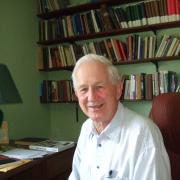by Elmar Kremer
Take a deep dive into classic debates about the nature and existence of God.
Take a deep dive into classic debates about the nature and existence of God.

Elmar Kremer is interested in 17th and 18th century philosophy and philosophy of religion.
Both Classical Theists and Theistic Personalists agree that God created the world. But they disagree about how we should understand God’s causality. Does God cause things in the same sense in which we humans cause things, or is God’s causality fundamentally different from any causality we exercise?
What does it mean to say God *knows* things? This video examines two answers to that question. Theistic personalists hold that God knows things in the same sense in which we know things: by observing them. Classical Theists deny this account and hold rather that God knows things by causing their existence.
People often say that God is good, and that God is just. But in what sense is God good and just? This video presents an argument from Classical Theism that God’s goodness and justice do not, as Theistic Personalists think, count as “moral goodness”; rather, they follow from seeing God as the fullness of being.
If, as Classical Theists hold, we and all created things exist because God is good, what can evil be? This video presents the privation theory of evil–that evil is the absence of something that ought to exist–and shows how such evil is compatible with a good God.
Often it can seem like the existence of evil is incompatible with a good and omnipotent God. This video present an argument for that claim put forward by J.L. Mackie, and it examines the different ways that Classical Theism and Theistic Personalism respond to a version of it that concludes that there is no God.